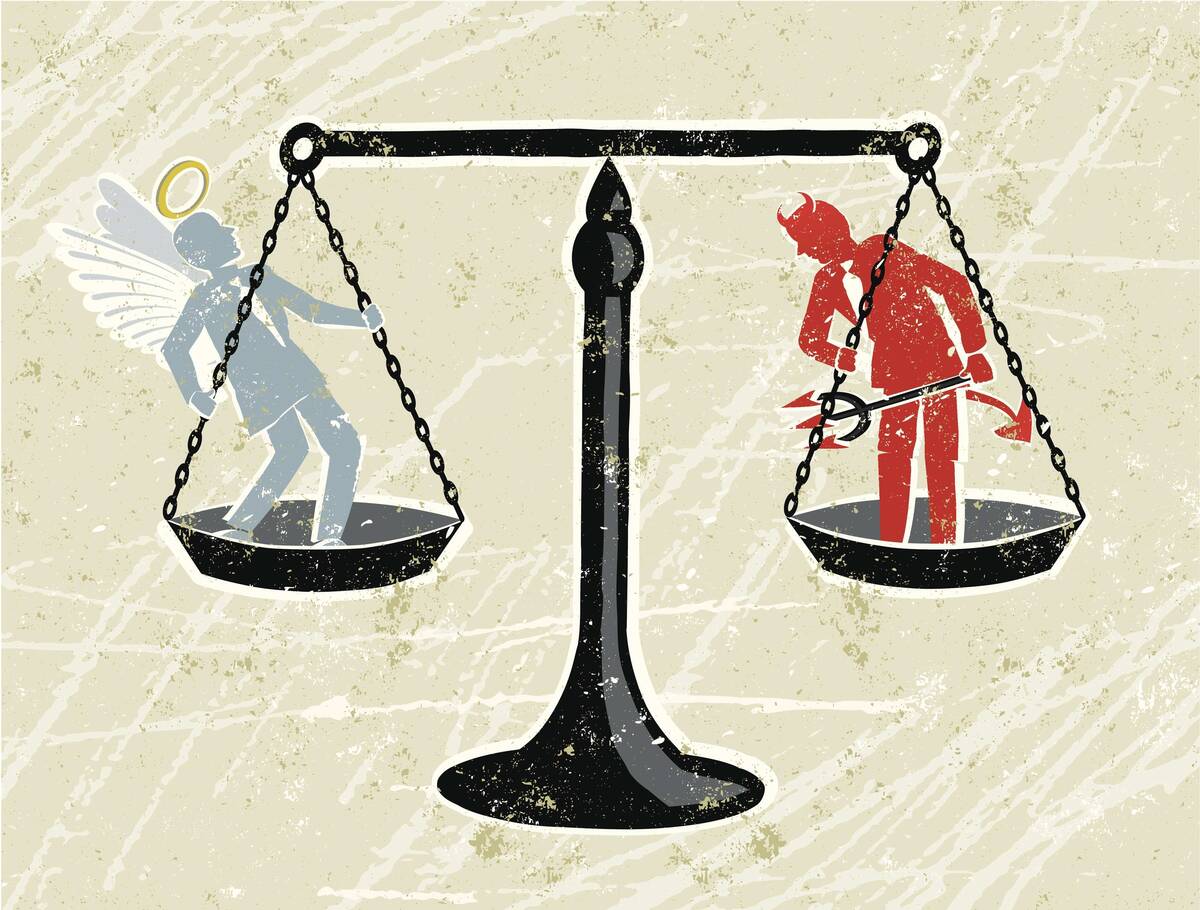Kellogg faculty have conducted research on ethical behavior among employees, bosses, and entire companies. Here is some of their advice for curbing unethical behavior at work.
1. Take a Lesson from Vampire Lore
What if your boss asks you to act unethically? Refusing could put your job at risk.
Better to figure out how to avoid being asked, reasoned Maryam Kouchaki, an assistant professor of management and organizations.
She found that displaying a “moral symbol,” such as a religious icon, a poster of a spiritual figure like Gandhi, or an ethically relevant quotation, can serve as a kind of amulet against corruption in the workplace—a necklace of garlic, so to speak.
“We want people to feel that no matter what, they have control over their situations,” Kouchaki says, “and that there are things they can do to prevent questionable behaviors from others.”
2. Encourage the Powerful to Act Ethically
What is to be done about that unethical boss, even if he leaves you alone? Can his bad behavior be checked?
Marketing professor Derek Rucker studies how both having and lacking power affects people’s psyches. He found that encouraging power holders to think about how they should act can help curb unethical behavior.
We all have expectations of how those with power should behave, which often differs from how we think powerful people really do behave. In a series of experiments, the researchers found that when people focused on the expectation that power should be used ethically, they were more likely to behave ethically.
3. Know When Your Employees Are Most Tempted to Cheat
It’s Kathy’s last day at the office. How likely is he to steal a stapler on his way out?
More likely than he was a week earlier, according to the late J. Keith Murnighan, a beloved professor of management and organizations who passed away last year. Yet this “cheating at the end” is not motivated simply by a likely lack of consequences. Instead, the behavior is spurred by an urge to avoid future feelings of regret at passing up a last opportunity for personal gain.
This is particularly relevant for managing risk among short-term employees in the gig economy, according to Murnighan.
“We tend to want to squeeze the last drop of productivity we can, particularly from part-time workers who aren’t coming back. But I think that’s a mistake.”
Instead, his recommendation is to loosen contractor commitments near the end of an engagement. “Consider letting people go home at one o’clock on the last day instead of keeping them until 5 p.m. When you give them a little bonus like that, they’re less likely to try and take some other kind of bonus for themselves on the way out.”
4. Corporate Culture Takes More Than Lip Service
Beyond ensuring those staplers stay put, what is the advantage of establishing an ethical corporate culture?
A lot, says finance professor Paola Sapienza. Her research shows that when employees truly believe their company values integrity, that company will have higher profits and other indicators of strong performance.
This is not the case for companies that simply tout their integrity to outside audiences, the researchers found. Additionally, Sapienza says, “we didn’t find any correlations between the cultural values that a company advertises and what its employees perceive from the inside once they’re working there.”
5. Should You Hire Someone with a Criminal Record?
It may seem obvious that if you want to foster a corporate culture of honesty and integrity, you should avoid hiring people with criminal records.
That turns out to not necessarily be true.
Nicola Persico, a professor of managerial economics and decision sciences, looked at data from more than 1 million job applicants mainly for positions as sales representatives in call centers and in customer service.
They found that the turnover rate for ex-offenders was 13% lower than average, which translates into a significant savings for companies in turnover costs. And for employees in customer service positions, those with criminal records were no more likely to be fired for misconduct. However, in sales positions, employees with a criminal record had a 28% higher risk of being terminated for misconduct than coworkers without records.
Minor says he has heard employers say, “I’d never hire someone with a background.” But, he notes, for some occupations, “There could be an opportunity to hire some people, give them a second chance, and even get a more loyal employee.”




